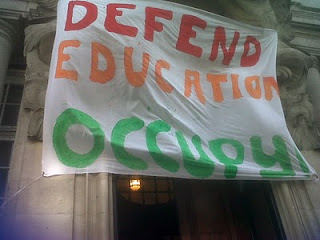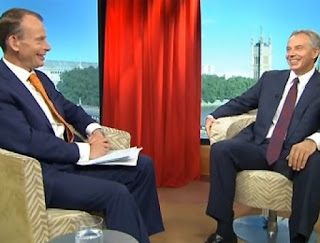
It wasn't a surprise for those who had been doing the research (or, as in my case, who knew someone who had been doing the research). The plan to raise tuition fees to £9000 was passed by a measly 21 votes. But that number comes nowhere near representing the battle which has surrounded these plans.
MP's (and not just Lib Dems) have apparently been staggered by the reaction to the proposals, though I fail to see why. Debates raged over whether the proposals were fair or not, and we won the argument. Thousands of students, teachers, and members of the general public came out to display just how angry they were about the cuts.
I won't bore anyone with a long-winded rant on why these cuts are a shameful, ideologically-driven and ill-advised move to a less equal future for educational opportunities. I won't even underline the fact that Romania are the only other country cutting further education in these times, when 'austerity' seems to be the new fashionable buzzword of policy. I won't point out that there are five countries with worse deficits than us, and recently 'bailed-out' states such as ireland and Greece have not cut higher education budgets, least of all by 80%.
These debates have all been had, and these points have all been made, and they have been made much more eloquently than I could wish to make them. Instead, I will briefly lay out the situation now, as I see it.
Part of me feels sorry for Nick Clegg, and the rest of the Lib Dems (no, really I do). I don't believe that Clegg set out to deceive, or that they secretly love the Tories. As I see it, they were a political party with admirable ideals, who were not used to having power; and when they did have it, they fluffed their lines.
Essentially, they played the whole coalition agreement badly. What the Lib Dem's failed to capitalise on was the fact that the power rested with them. Without them, there was no government. They held all the cards. Clegg and co are now playing the 'we didn't win, we can't implement our ideas' card; but neither did the Tories win. So why are they implementing their ideas? The answer is an obvious one; because the Lib Dems let them do so. What the Lib Dems should have done is stick to their guns, put an offer on the table to the Tories (including a 'no raise on tuition fees' and 'AV referendum' clause), and told the Tories to take it or leave it. If they took it then great, the Lib Dems get to keep their two main pledges and be in government. If not then fine, hold another election. The Lib Dems' support probably would have increased, as the public admired Clegg sticking to his principles. They were on an upward trajectory anyway, why not let this carry on?
But they didn't do that. They sold out too easily; perhaps they let the Tories bully them, or perhaps they just didn't negotiate hard enough. Either way, they are stuck with the agreement now, as are we. All the Lib Dems can do when it comes to tuition fees is abstain completely, or water down an essentially Conservative policy. They chose the latter, which was the lesser of two evils (though still very much an evil). We campaigned as hard as we could, we mobilised more students than have been mobilised since 1968, we made our voices heard, and our presence felt. We still lost the vote, because there are too many Lib Dems who had to vote 'yes' to keep their jobs.
So, what now? Well for a start, we should keep up the momentum of this movement, and keep the flame of anger which is alight in so many young people, burning. We must not succumb to apathy, or dejection. We have suffered a massive injustice, and have an ideal opportunity to right this wrong.
Next Tuesday the vote goes to the house of Lords, and on Monday mass-protests over the scrapping of EMA are planned. This issue is particularly dear to me; without EMA, I would have probably had to take on a second job whilst doing my A-Levels, and with all of that coupled with my sporting commitments my studies would definitely have suffered massively, which may have meant me not getting into Goldsmiths. For others it is even more important, being the difference between many people I know staying in education or not.
Equally importantly, we must recognise that this Government is far from stable. It is close to collapse, and with an extra push it can be brought to its knees. They have taken a battering over this tuition fee row, and the cracks are already there to see. There will be more rows to come, more splits to exploit, and more strikes and protests to support. All the debates over whether the violence was justified or not, whether the police are human beings just doing their job or power-hungry thugs, and why Charles and Camilla were rollin' through a riot like drug lords at the end of a Jason Statham film are irrelevant.
What is important is to keep in mind that this coalition are pushing through ideologically-driven cuts which will fundamentally change the face of British society without any public consultation, and without previously including them in any manifesto. They have no power to rule, and we must not lie down and let these cuts go ahead. We must continue to take to the streets, to march, to protest, and to fight these cuts. The war is not lost, and the fight is far from over.
Sam Bailey
Postscript - An open note to the Met's High Commissioner, Sir Paul Stephenson. KETTLES BOIL THINGS. As a friend of mine said yesterday, I'm not sure if the police realise how often it is up to them whether a protest turns violent or not. It is a vicious cycle - the over-enthusiastic use of kettles leads to violence, which leads to the police justifying the use of kettles. Stop kettling us. Democratic protesting is a legal act in the UK, last time I checked. Start treating it as such.









